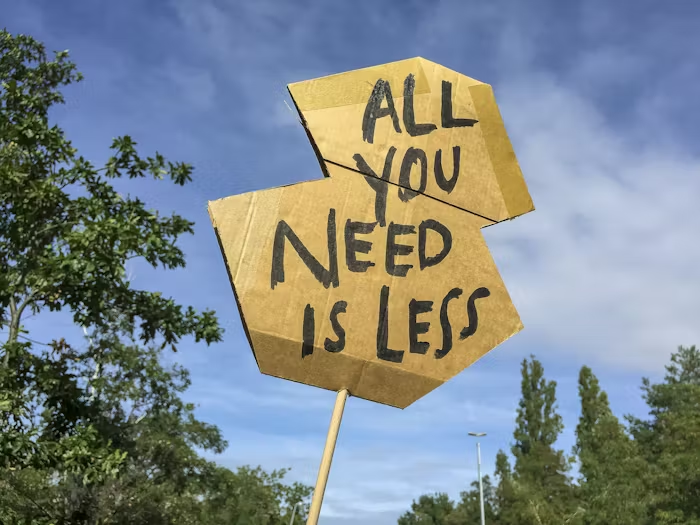In the intricate tapestry of human relationships, empathy emerges as one of the most vital threads holding everything together. It’s the ability to understand and share the feelings of another, creating a bridge of connection that deepens love, enhances communication, and fosters lasting bonds. Whether in romantic partnerships, friendships, or familial ties, empathy is the cornerstone of meaningful and enduring relationships.
This article delves into the importance of empathy, its profound impact on relationships, and practical ways to cultivate this essential quality to ensure your connections remain strong and resilient.
The Foundation of Lasting Bonds
What Are Lasting Bonds?
Lasting bonds are relationships that endure the test of time. These are connections built on trust, mutual respect, and shared experiences. Such relationships thrive when both parties invest in understanding and supporting each other.
The Role of Empathy in Building Lasting Bonds
Empathy allows individuals to see the world from another’s perspective, making them feel heard and valued. This emotional resonance creates a sense of security and understanding, which are critical for the longevity of any relationship.
Without empathy, misunderstandings can fester, leading to resentment and distance. Conversely, with empathy, even the most challenging conflicts can be resolved, paving the way for stronger and more fulfilling connections.
Why Empathy Matters in Relationships
Empathy is the emotional glue that binds people together. Here’s why it’s indispensable:
1. Enhances Communication
Empathy improves communication by encouraging active listening and thoughtful responses. When you truly understand your partner’s emotions, you can respond in ways that validate their feelings and foster open dialogue.
2. Builds Trust
When people feel understood, they are more likely to trust you. Empathy reassures them that their emotions and experiences are safe with you, strengthening the trust that is essential for lasting bonds.
3. Promotes Emotional Intimacy
Empathy deepens emotional intimacy by allowing individuals to connect on a profound level. This connection enhances the depth and quality of love in a relationship.
4. Reduces Conflict
Understanding another’s perspective helps in resolving disagreements amicably. Empathy shifts the focus from blame to collaboration, making it easier to find solutions that work for everyone involved.
5. Fosters Personal Growth
Being empathetic encourages self-reflection and personal growth. It challenges individuals to think beyond their own needs, fostering a sense of compassion and maturity.

The Science Behind Empathy
What Is Empathy?
Empathy is more than just sympathy or pity. It involves genuinely feeling another person’s emotions and striving to understand their perspective. Psychologists categorize empathy into three types:
- Cognitive Empathy: Understanding another’s thoughts and perspectives.
- Emotional Empathy: Sharing and experiencing another’s emotions.
- Compassionate Empathy: Taking action to alleviate another’s pain or distress.
How Does Empathy Work?
Empathy is rooted in the brain’s mirror neurons, which activate when we observe others experiencing emotions. This biological mechanism helps us relate to others, making empathy an innate but developable trait.
Empathy and Relationship Longevity
Studies have shown that empathetic partners report higher levels of satisfaction in their relationships. Empathy fosters resilience, helping couples and families navigate challenges with understanding and compassion.
Practical Ways to Cultivate Empathy
While empathy is a natural ability, it can be nurtured and strengthened through intentional practices.
1. Active Listening
Pay full attention to the speaker without interrupting or judging. Show genuine interest in what they are saying and reflect on their words to ensure you understand their perspective.
Tips for Active Listening:
- Maintain eye contact.
- Avoid distractions (e.g., phones or TV).
- Use affirming gestures like nodding or verbal acknowledgments.
2. Practice Emotional Validation
Acknowledging someone’s feelings, even if you don’t fully agree, shows that you respect their emotions. Validation fosters trust and makes people feel valued.
Example:
Instead of saying, “You’re overreacting,” try, “I understand why you feel this way. Let’s talk about it.”
3. Engage in Perspective-Taking
Put yourself in the other person’s shoes. Imagine their experiences, struggles, and emotions to gain a deeper understanding of their viewpoint.
Exercises for Perspective-Taking:
- Read literature or watch films that portray diverse experiences.
- Ask open-ended questions to understand someone’s story.
- Reflect on how you would feel in their situation.
4. Show Compassion Through Actions
Empathy is incomplete without action. Small gestures of kindness and support demonstrate that you care about the other person’s well-being.
Examples:
- Offer a listening ear during tough times.
- Help with tasks when your loved one is overwhelmed.
- Celebrate their achievements and milestones.
5. Cultivate Emotional Awareness
Being aware of your own emotions enhances your ability to empathize with others. Regularly reflect on your feelings and how they influence your interactions.
How to Cultivate Emotional Awareness:
- Practice mindfulness or meditation.
- Keep a journal to track your emotions.
- Seek feedback from trusted friends or family.
Empathy in Romantic Relationships
The Role of Empathy in Love
Empathy is the heart of romantic relationships. It deepens emotional intimacy and fosters a sense of partnership. When both individuals prioritize understanding and supporting each other, love flourishes.
Overcoming Challenges with Empathy
- Misunderstandings: Use empathy to clarify intentions and feelings.
- Emotional Distance: Reconnect by actively listening and showing concern.
- Conflict: Approach disagreements with compassion rather than defensiveness.
Empathy-Building Activities for Couples
- Share daily gratitude for each other.
- Discuss each other’s dreams and goals.
- Take turns planning activities that reflect each other’s interests.
Empathy in Friendships
Why Empathy Is Crucial Among Friends
Friendships thrive on mutual support and understanding. Empathy helps friends navigate life’s ups and downs together, creating bonds that last a lifetime.
Strengthening Friendships Through Empathy
- Be present during your friend’s challenges.
- Celebrate their successes without envy.
- Offer constructive advice when asked.
Empathy in Family Relationships
Building Empathy Within Families
Families often face unique dynamics that can strain relationships. Empathy fosters understanding and collaboration, ensuring a harmonious family life.
Practical Tips for Families
- Parents and Children: Listen to your child’s concerns without dismissing them.
- Siblings: Show patience and understanding, even during disagreements.
- Extended Family: Respect differing opinions and cultural practices.
The Challenges of Practicing Empathy
While empathy is a powerful tool, it’s not always easy to practice.
Common Obstacles
- Emotional Burnout: Constantly empathizing with others can be draining.
- Biases: Prejudices can hinder the ability to empathize.
- Miscommunication: Misinterpreting someone’s feelings can lead to frustration.
Overcoming These Challenges
- Set boundaries to protect your emotional energy.
- Challenge your biases through education and exposure.
- Clarify emotions and intentions through open dialogue.
Empathy’s Role in Personal Growth
Empathy not only strengthens relationships but also promotes personal growth. By understanding others, you gain new perspectives, expand your emotional intelligence, and become a more compassionate individual.
Empathy is the lifeblood of meaningful connections. It nurtures lasting bonds, deepens love, and transforms relationships into havens of trust and support. By cultivating empathy through active listening, perspective-taking, and compassionate actions, you can ensure that your relationships flourish in every phase of life.
In a world that often emphasizes individualism, empathy serves as a reminder of our shared humanity. Embrace it, and watch your relationships — and your personal growth — reach unparalleled heights.










